Updated March 12, 2025

| Label (Company) |
|
|
| Country |
|
|
| Format |
|
|
| Number of records |
|
|
| Catalogue number |
|
|
| Catalogue number of side 1 |
|
|
| Catalogue number of side 2 |
|
|
| Matrix number of side 1 |
|
|
| Matrix number of side 2 |
|
|
| Mono or Stereo |
|
|
| Rotation speed, rpm |
|
|
| First release date |
|
Known combinations of matrix numbers endings:
Відомі сполучення закінчень матричних номерів:
combination 1 |
combination 2 |
combination 3 |
||||
side 1 |
|
|
|
|||
side 2 |
|
|
|
Click on image to enlarge
Натисніть на картинку, щоб її збільшити
COVER
ОБКЛАДИНКА
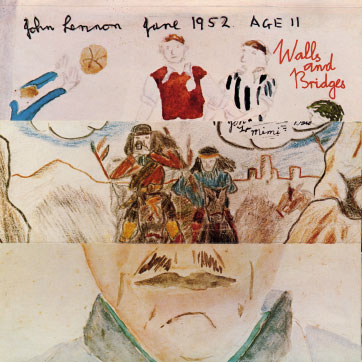 |
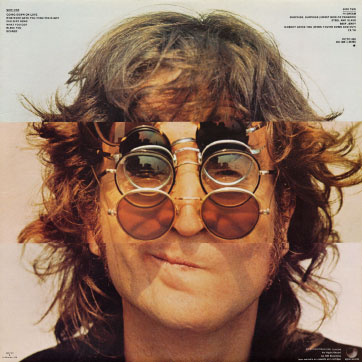 |
|
Front side Лицьова сторона |
Back side Зворотний бік |
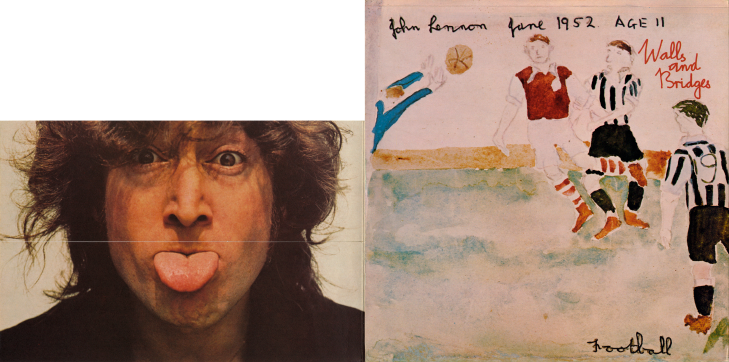
Surprise cover (two flaps that fold forward)
Обкладинка з сюрпризом (два клапани, які відкидаються вперед)
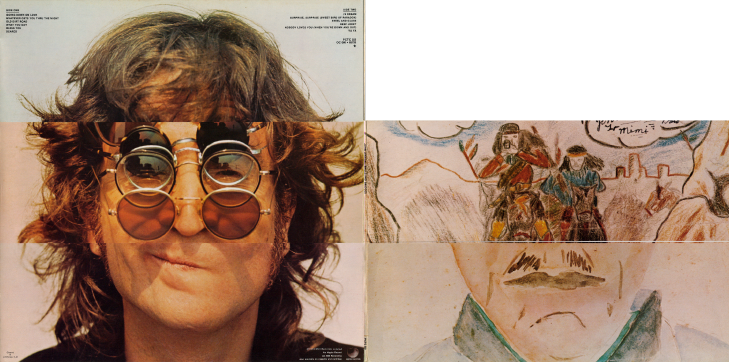
Surprise cover (same two flaps, which can be thrown to the back side)
Обкладинка з сюрпризом (ті самі два клапани, які можна перекинути на задній бік)
![]()
Spine – the front side of the cover up
Корінець – обкладинка розташована лицьовою стороною до гори
INNER SLEEVE
ВНУТРІШНІЙ ПАКЕТ
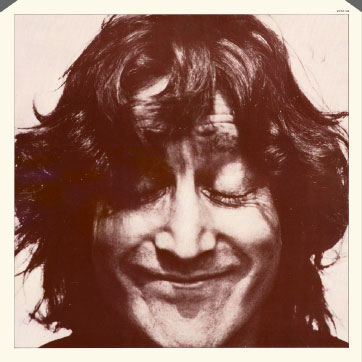 |
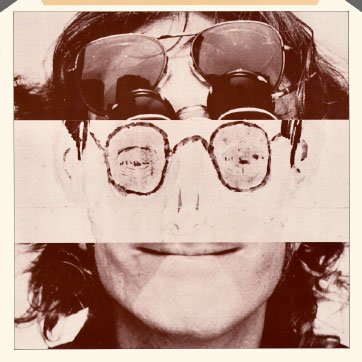 |
|
Front side Лицьова сторона |
Back side Зворотний бік |
BOOKLET
БУКЛЕТ
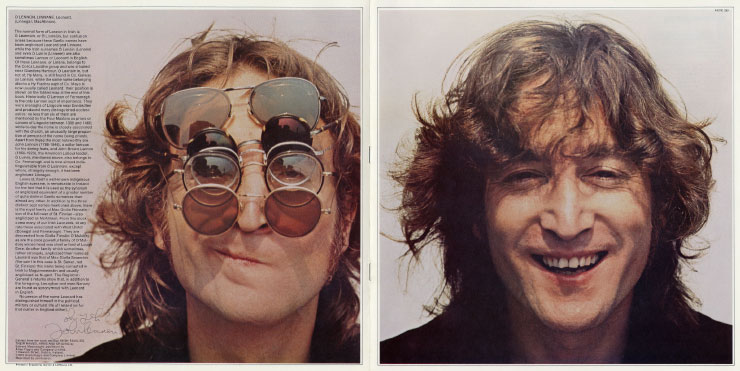
First and last pages
Перша й остання сторінки
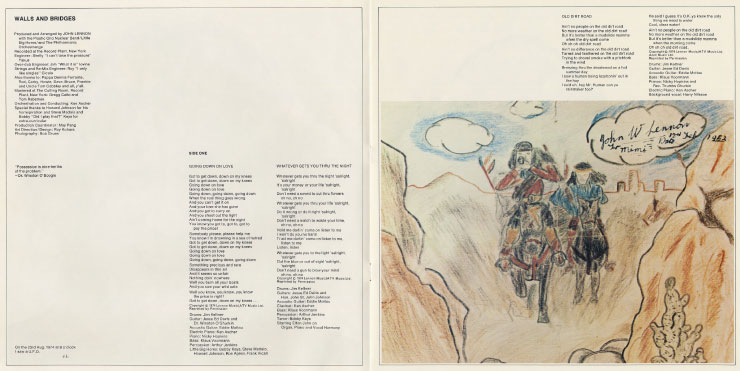
Pages 2-3
Сторінки 2-3
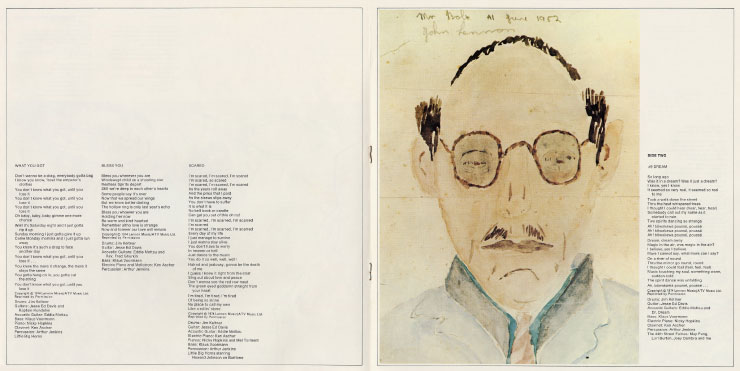
Pages 4-5
Сторінки 4-5
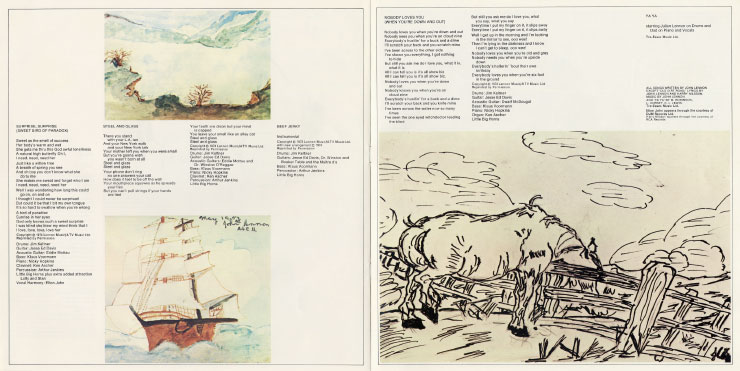
Pages 6-7
Сторінки 6-7
LABELS
ЕТИКЕТКИ
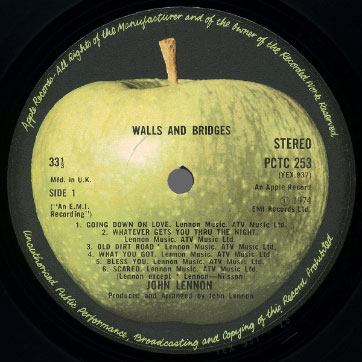 |
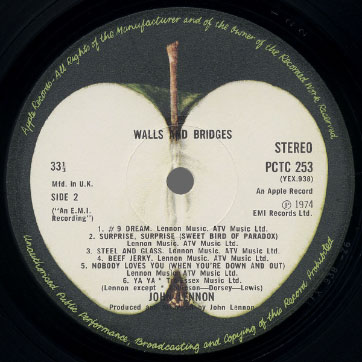 |
|
Side 1 Сторона 1 |
Side 2 Сторона 2 |
SIDE 1
N |
Titles and authors |
Time |
Comments |
1 |
Going Down On Love (Lennon) | 3:54 |
For a list of musicians and other additional information, see below |
2 |
Whatever Gets You Thru The Night (Lennon) | 3:25 |
|
3 |
Old Dirt Road (Lennon-Nilsson) | 4:09 |
|
4 |
What You Got (Lennon) | 3:08 |
|
5 |
Bless You (Lennon) | 4:37 |
|
6 |
Scared (Lennon) | 4:39 |
SIDE 2
N |
Titles and authors |
Time |
Comments |
1 |
#9 Dream (Lennon) | 4:48 |
For a list of musicians and other additional information, see below |
2 |
Surprise, Surprise (Sweet Bird Of Paradox) (Lennon) | 2:55 |
|
3 |
Steel And Glass (Lennon) | 4:37 |
|
4 |
Beef Jerky (Lennon) | 3:27 |
|
5 |
Nobody Loves You (When You're Down And Out) (Lennon) | 5:10 |
|
6 |
Ya Ya (Robinson-Dorsey-Lewis) | 1:06 |
NOTE
|
A1 Dr. Winston O'Ghurkin - Vocals and guitar. Jim Keltner - Drums. Jesse Ed Davis - Guitar. Eddie Mottau - Acoustic guitar. Ken Ascher - Electric piano. Nicky Hopkins - Piano. Klaus Voorman - Bass. Arthur Jenkins - Percussion. Little Big Horns. A2 Hon. John St. John Johnson - Vocals and guitar. Elton John - Organ, piano and vocal harmony. Jim Keltner - Drums. Jesse Ed Davis - Guitar. Eddie Mottau - Acoustic guitar. Ken Ascher - Clavinet. Klaus Voorman - Bass. Arthur Jenkins - Percussion. Bobby Keys - Tenor Sax. A3 Rev. Thumbs Ghurkin - Vocals and piano. Harry Nilsson - Backing vocals. Jim Keltner - Drums. Jesse Ed Davis - Guitar. Eddie Mottau - Acoustic guitar. Ken Ascher - Electric piano. Nicky Hopkins - Piano. Klaus Voorman - Bass. A4 Kaptain Kundalini - Vocals and guitar. Jim Keltner - Drums. Jesse Ed Davis - Guitar. Eddie Mottau - Acoustic guitar. Ken Ascher - Clavinet. Nicky Hopkins - Piano. Klaus Voorman - Bass. Arthur Jenkins - Percussion. Little Big Horns. A5 Rev. Fred Ghurkin - Vocals and acoustic guitar. Jim Keltner - Drums. Jesse Ed Davis - Guitar. Eddie Mottau - Acoustic guitar. Ken Ascher - Electric piano and mellotron. Klaus Voorman - Bass. Arthur Jenkins - Percussion. A6 Mel Torment - Vocals and piano. Jim Keltner - Drums. Jesse Ed Davis - Guitar. Eddie Mottau - Acoustic guitar. Ken Ascher - Electric piano. Nicky Hopkins - Piano. Klaus Voorman - Bass. Arthur Jenkins - Percussion. Little Big Horns starring Howard Johnson on Baritone. |
B1 Dr. Dream - Vocals and acoustic guitar. Jim Keltner - Drums. Jesse Ed Davis - Guitar. Eddie Mottau - Acoustic guitar. Ken Ascher - Clavinet. Nicky Hopkins - Electric piano. Klaus Voorman - Bass. Arthur Jenkins - Percussion. The 44th Street Fairies. B2❋ B2❋ Dr. Winston O'Ghurkin - Vocals (No Instrument). |
B2❋ - A song written about Yoko. In the 60's she worked in a restaurant in Greenwich Village called "Paradox".
B2❋ - Пісня, написана про Йоко. У 60-х вона працювала в ресторані в Грінвіч-Віллідж під назвою "Paradox".
The record cover has surprise - two flaps that fold over the front (see Pic. 1-2. Photos are clickable).
The cover of the record features a child's drawing by 11 y.o. John, based on true events. Lennon wanted goalkeeper George Swindin to save Arsenal's game in the May 1952 FA Cup final between Newcastle and Arsenal. The only winning goal then was scored by Newcastle's Chilean star player Robledo. A month later in his drawing, John recreated the situation in which Swindin saves the game by caught the ball (see Pic. 3).
Cover of first pressing was three types:
Type 1 - open on top and left, with indication of the printing house Garrod & Lofthouse Ltd.;
Type 2 - open on left, with indication of the printing house Garrod & Lofthouse Ltd.;
Type 3 - open on left, without indication of the printing house.
The inner sleeve was of two types:
Type 1 - corners cut only at top (for all types covers of first edition 1974);
Type 2 - rounded all four corners (in subsequent reissues of the 80s).
The booklet could be printed either:
Type 1 - on glossy paper (for cover type 1 and 2);
Type 2 - on matte paper (for cover type 2).
The design of record labels for the first edition of 1974 and the reissues of the 80s was exactly the same. It is possible to find out the year of manufacture of a particular record only by the matrix numbers (see Pic. 4-7. Photos are clickable). The first copies were printed from matrices received from America. This may explain the presence of an additional American matrix number on them.
The very first mintage had matrix numbers with US lacquer numbers scrawled underneath:
YEX 937-Z5 SW 1-3416-Z-5.... * MCR
YEX 938-Z6 SW 2-3416-Z-6 *.
The * symbol (asterisk or daisy) indicates that the lacquer belongs to the Los Angeles plant.
The abbreviation MCR means that the lacquer were cut at Master Cutting Room (a division of The Record Plant, NYC).
The cover has the record insert not only on the left side, but also on the top too.
Type 1 inner package - top corners trimmed, bottom corners straight.
In the early 80s, the second circulation was realized, in which the matrix of the first side was replaced by the English one. At the same time, the numbering of stampers changed from letters to numbers. And the corners of the inner envelope had already become rounded.
The third edition appeared in the late 80s and was pressed entirely by English stampers.
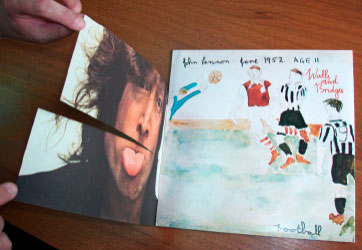 |
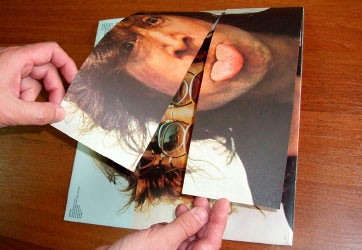 |
Pic. 1-2. Photos of the cover on both sides, explaining what its surprise is
Мал. 1-2. Світлини обкладинки з обох боків, що пояснюють, у чому полягає її сюрприз
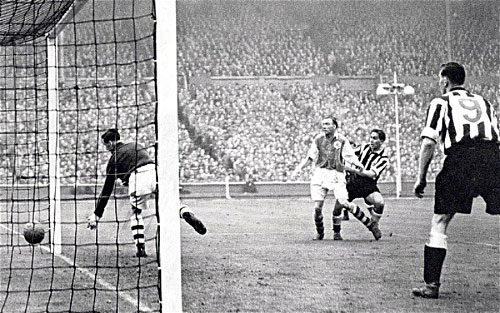
Pic. 3. The photograph from which John made his drawing
Мал. 3. Світлина з якої Джон зробив свій малюнок
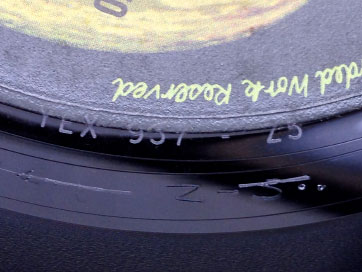 |
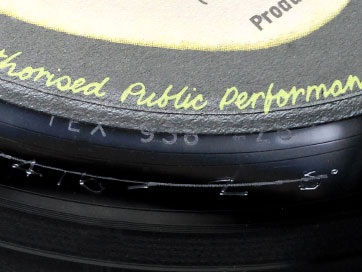 |
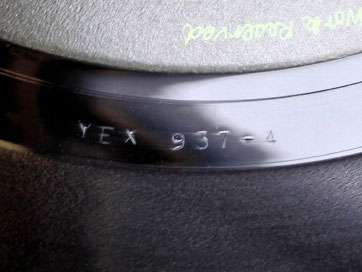 |
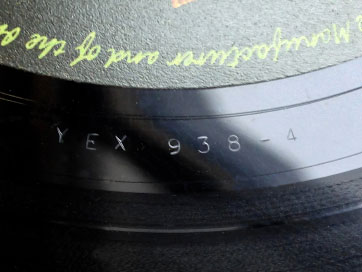 |
Pic. 4-7. Photos of matrix numbers from the first pressing (up) and reissue from the late 80s (down)
Мал. 4-7. Світлини матричних номерів першого накладу (угорі) і перевидання кінця 80-х (унизу)
ПРИМІТКА
Обкладинка платівки має сюрприз - два клапани, які відкидаються вперед (див. Мал. 1-2. Світлини клікабельні).
На обкладинці платівки розміщено дитячий малюнок 11-річного Джона, заснований на реальних подіях. Леннон дуже хотів, щоб воротар Джордж Свіндін врятував гру Арсеналу в травні 1952 року у фіналі Кубка Англії між Ньюкаслом і Арсеналом. Єдиний переможний гол тоді був забитий чилійським зірковим гравцем Ньюкасла Робледо. Місяць потому у своєму малюнку, Джон відтворив ситуацію, в якій Свіндін рятує гру, зловивши м'яч (див. Мал. 3).
Обкладинка першого видання була трьох типів:
Тип 1 - із вкладенням платівки ліворуч і зверху, із зазначенням друкарні Garrod & Lofthouse Ltd.;
Тип 2 - із вкладенням платівки зліва, із зазначенням друкарні Garrod & Lofthouse Ltd.;
Тип 3 - із вкладенням платівки зліва без зазначення друкарні.
Внутрішній пакет був двох типів:
Тип 1 - кути обрізані тільки зверху (для всіх типів конверта першого видання 1974 року);
Тип 2 – усі чотири кути із закругленнями (у наступних перевидань 80-х років).
Буклет могли надрукувати або:
Тип 1 – на глянцевому папері (для типів обкладинок 1 і 2);
Тип 2 – на матовому папері (для типу обкладинки 2).
Дизайн етикеток платівок для першого видання 1974 року і перевидань 80-х років був абсолютно однаковий. Дізнатися рік виготовлення конкретної платівки можливо тільки за номерами матриць (див. Мал. 4-7. Світлини клікабельні). Перші екземпляри були видрукувані з отриманих з Америки матриць. Цим можна пояснити присутність на них додаткового американського матричного номера.
Найперший тираж мав матричні номери із закресленими під ними американськими номерами лакеру:
YEX 937-Z5 SW 1-3416-Z-5.... * MCR
YEX 938-Z6 SW 2-3416-Z-6 *.
Клеймо * (зірочка або маргаритка) означає приналежність лакового диску заводу в Лос-Анджелесі.
Абревіатура MCR означає, що лаковий диск був нарізаний у Master Cutting Room (підрозділ студії The Record Plant, NYC).
Обкладинка має вкладення платівки не тільки зліва, а й зверху.
Внутрішній пакет типу 1 - верхні кути обрізані, нижні кути прямі.
На початку 80-х років було здійснено новий наклад, в якому відбулася заміна матриці першої сторони платівки на англійську. При цьому, нумерація штамперів перейшла з букв на числа. А кути внутрішнього конверта вже стали закругленими.
Третій тираж з'явився наприкінці 80-х років і був повністю відпресований англійськими штамперами.
Перелік музикантів, що брали участь в запису композицій, надано в англійській частині примітки.